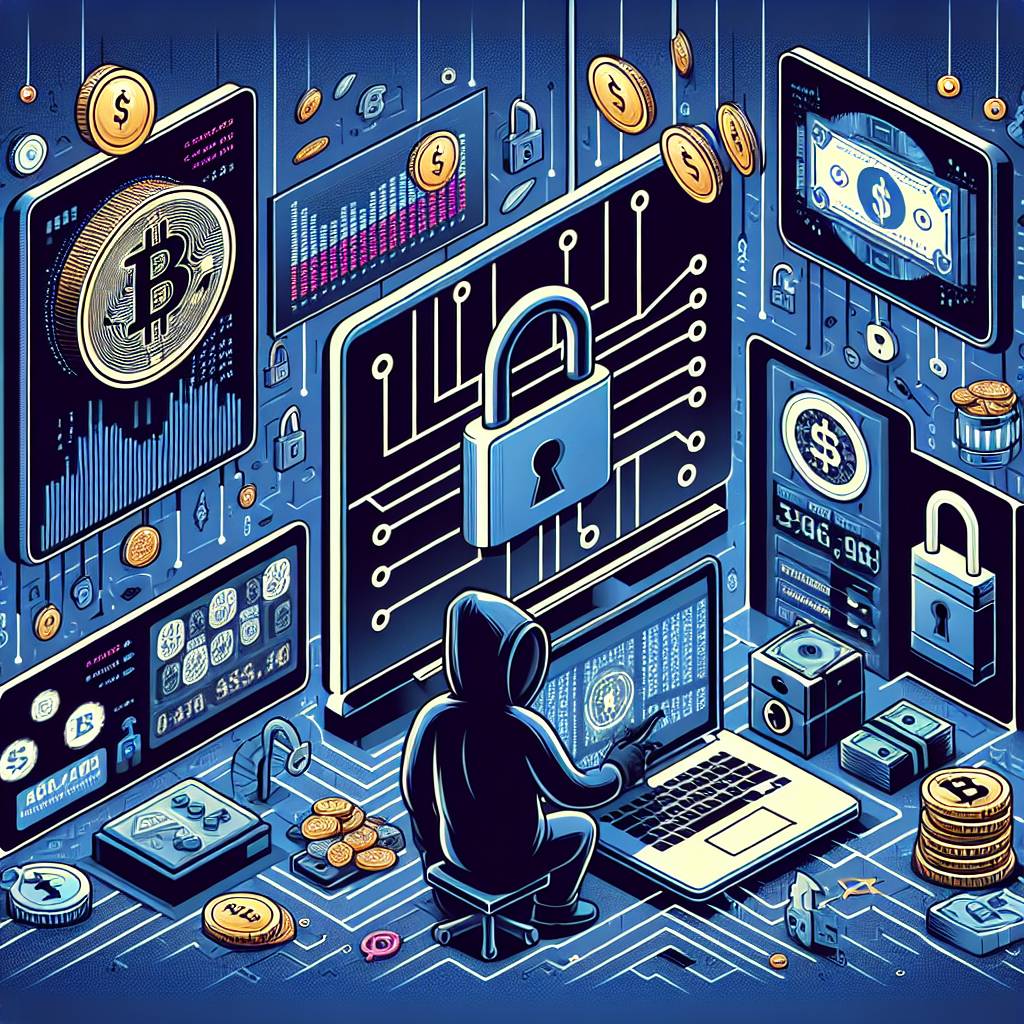What are the latest techniques for securing my Ethereum wallet?
I want to ensure the security of my Ethereum wallet. What are the most up-to-date techniques and best practices for securing it?

3 answers
- One of the latest techniques for securing your Ethereum wallet is to use a hardware wallet. Hardware wallets are physical devices that store your private keys offline, making it nearly impossible for hackers to access them. They provide an extra layer of security by keeping your private keys separate from your computer or smartphone, which may be vulnerable to malware or hacking attempts. Some popular hardware wallets for Ethereum include Ledger Nano S and Trezor. Make sure to purchase hardware wallets directly from the manufacturer or authorized resellers to avoid counterfeit devices. Another important technique is to enable two-factor authentication (2FA) for your Ethereum wallet. By enabling 2FA, you add an extra layer of security by requiring a second verification step, usually through a mobile app or SMS code, in addition to your password. This makes it much harder for attackers to gain unauthorized access to your wallet even if they manage to obtain your password. Additionally, it's crucial to keep your wallet software and operating system up to date. Developers regularly release security patches and updates to fix vulnerabilities and improve the overall security of their software. By keeping your wallet software and operating system up to date, you ensure that you have the latest security enhancements and protection against potential threats. Lastly, it's important to be cautious of phishing attempts and malicious websites. Hackers often use phishing emails and fake websites to trick users into revealing their private keys or login credentials. Always double-check the URL of the website you're visiting and be wary of unsolicited emails asking for your wallet information. Use a reliable antivirus software and avoid clicking on suspicious links or downloading files from untrusted sources. Remember, securing your Ethereum wallet is crucial to protect your funds from potential theft or unauthorized access. By following these latest techniques and best practices, you can significantly enhance the security of your Ethereum wallet.
 Jan 20, 2022 · 3 years ago
Jan 20, 2022 · 3 years ago - Securing your Ethereum wallet is of utmost importance in the world of cryptocurrency. One technique that has gained popularity is using a multisignature wallet. A multisignature wallet requires multiple private keys to authorize transactions, adding an extra layer of security. This means that even if one of your private keys is compromised, the attacker would still need access to the other private keys to complete a transaction. Multisignature wallets can be set up using smart contracts on the Ethereum blockchain or through specialized wallet providers. Another technique is to regularly backup your wallet's private keys or recovery phrases. This ensures that even if your device is lost, stolen, or damaged, you can still regain access to your funds. Store your backups in secure locations, such as encrypted external hard drives or offline storage devices, and make sure to test the restoration process to ensure your backups are valid. Furthermore, consider using a dedicated computer or virtual machine for your cryptocurrency activities. This minimizes the risk of malware or keyloggers capturing your sensitive information. Keep your cryptocurrency-related activities separate from general browsing and avoid installing unnecessary software or browser extensions that may compromise your security. Lastly, educate yourself about common security threats and stay updated on the latest news and developments in the cryptocurrency space. By staying informed, you can proactively protect your Ethereum wallet from emerging threats and vulnerabilities. Remember, securing your Ethereum wallet requires a combination of technical measures, best practices, and user vigilance. Implementing these latest techniques will help safeguard your funds and provide peace of mind.
 Jan 20, 2022 · 3 years ago
Jan 20, 2022 · 3 years ago - At BYDFi, we prioritize the security of our users' Ethereum wallets. One of the latest techniques we recommend is using a decentralized wallet, such as MetaMask. Decentralized wallets allow you to retain full control of your private keys and interact directly with the Ethereum blockchain. They eliminate the need to trust a centralized entity with your funds, reducing the risk of hacks or thefts associated with centralized exchanges or custodial wallets. Another technique we emphasize is the use of strong and unique passwords for your Ethereum wallet. Avoid using easily guessable passwords or reusing passwords across multiple platforms. Consider using a password manager to generate and securely store complex passwords. Additionally, we encourage our users to enable transaction confirmations for outgoing transfers. This feature requires you to manually approve each transaction before it is executed, adding an extra layer of security. It allows you to review the transaction details and verify its accuracy before finalizing it. Lastly, we recommend regularly reviewing your wallet's transaction history and monitoring for any suspicious activity. If you notice any unauthorized transactions or unusual behavior, take immediate action by contacting your wallet provider or transferring your funds to a secure wallet. Securing your Ethereum wallet is a continuous process, and it's important to stay updated on the latest security practices and techniques. By implementing these measures, you can protect your Ethereum holdings and minimize the risk of theft or loss.
 Jan 20, 2022 · 3 years ago
Jan 20, 2022 · 3 years ago
Related Tags
Hot Questions
- 89
What are the best digital currencies to invest in right now?
- 77
How does cryptocurrency affect my tax return?
- 76
How can I protect my digital assets from hackers?
- 75
Are there any special tax rules for crypto investors?
- 65
What are the best practices for reporting cryptocurrency on my taxes?
- 63
What are the advantages of using cryptocurrency for online transactions?
- 60
How can I minimize my tax liability when dealing with cryptocurrencies?
- 8
What is the future of blockchain technology?